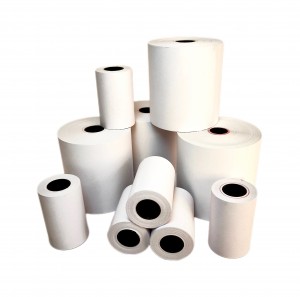In daily life and business activities, thermal paper is widely used in supermarket receipts, logistics labels, medical records and other fields. However, traditional thermal paper usually contains bisphenol A (BPA), a chemical that may cause potential harm to human health and the environment. In recent years, BPA-free thermal paper has gradually become a safer and more environmentally friendly alternative, favored by consumers and businesses.
Hazards and regulatory trends of BPA
BPA is an industrial chemical that is often used in thermal paper coatings to make it color when heated. However, studies have shown that BPA may interfere with the human endocrine system, affect reproductive health, and is associated with certain chronic diseases. In addition, BPA can enter the human body through skin contact (such as frequent contact with receipts) or environmental pollution. The European Union, the United States and other regions have begun to restrict the use of BPA in thermal paper, promoting the popularity of BPA-free alternatives.
Advantages of BPA-free thermal paper
BPA-free thermal paper uses safer colorants such as bisphenol S (BPS) or phenol-free compounds, which greatly reduces health risks. Its characteristics include:
High safety: Reduce the risk of long-term exposure to harmful substances for consumers and cashiers.
Environmental protection: Some BPA-free thermal papers use degradable materials, which is in line with the trend of green packaging.
Strong compatibility: The printing effect is equivalent to that of traditional thermal paper, and it is suitable for POS machines, label printers and other equipment.
Application scenarios and future trends
At present, BPA-free thermal paper has been promoted in food retail, medical, logistics and other industries. For example, supermarkets and catering companies use BPA-free receipts to enhance consumer trust; hospitals use BPA-free labels to avoid drug information from becoming invalid due to contact contamination. In the future, as regulations become stricter and consumers’ environmental awareness increases, BPA-free thermal paper may become an industry standard.
Post time: Jun-17-2025


